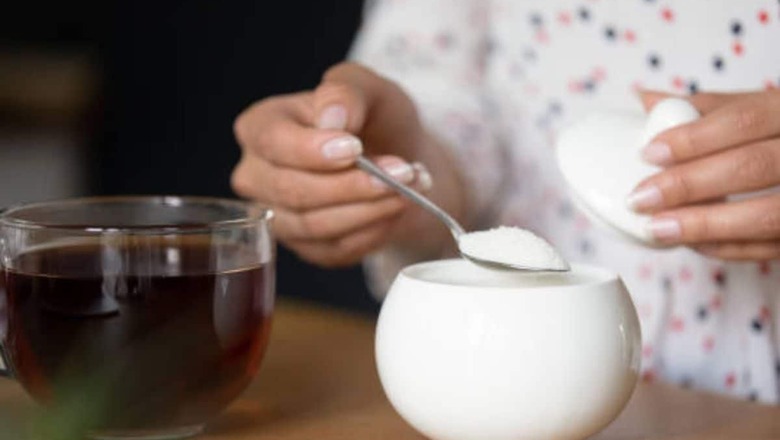
views
Tea lovers, get over sugar in your cup of Chai as a new twist involving salt may just pour you into a fresh controversy between the US and the UK! How did this come about? Michelle Francl, a chemistry professor at Bryn Mawr College in Pennsylvania, unveiled unconventional techniques for achieving the perfect brew in her new tea-centric book. Her counsel to add a hint of salt to mitigate the bitterness of tea and a splash of lemon to eliminate the lingering “scum” on the water’s surface left many Brits and Americans scratching their heads.
Hold on, what? As if the ongoing debate over tea preparation methods between the UK’s kettles and the US’s “microwaving” wasn’t enough, this novel suggestion undoubtedly added more spice (or should we say, salt) to the brewing dispute.
Addressing this, the US Embassy in London took to X, formerly known as Twitter, with an “important statement on the latest tea controversy.” Their proclamation asserted, “Tea is the elixir of camaraderie, a sacred bond that unites our nations. We cannot stand idly by as such an outrageous proposal threatens the very foundation of our special relationship.” The embassy reassured the UK that the notion of salting Britain’s national drink is not, and will never be, official United States policy. However, true to their rebellious past, they couldn’t resist adding a dash of mischief, affirming their commitment to making tea the “proper” way—by microwaving it.
An important statement on the latest tea controversy. pic.twitter.com/HZFfSCl9sD— U.S. Embassy London (@USAinUK) January 24, 2024
The post gained viral traction, prompting humourous comments from amused netizens. “This release is steeped in history,” joked one user, while another exclaimed, “The world is a meme.”
Not one to be left out of the banter, the British government joined in, stating, “We appreciate our Special Relationship, however, we must disagree wholeheartedly. … Tea can only be made using a kettle.”
Well, well, well, that’s banter on a level we never anticipated…
In response, to the statement put out by the US Embassy in the UK: We appreciate our Special Relationship, however, we must disagree wholeheartedly…
Tea can only be made using a kettle. https://t.co/Jt5xWKYRkT
— Cabinet Office (@cabinetofficeuk) January 24, 2024
But this ‘tea tale’ unfolded after Dr. Francl claimed to have cracked the code after delving into hundreds of research papers and ancient texts spanning over 1,000 years. In her book, ‘Steeped: The Chemistry of Tea,’ Dr. Francl championed the addition of a pinch of salt to “reduce the bitterness” and recommended pouring warmed milk post-brew to avoid curdling. She also advocated for the use of a short, stout mug and urged Britons to embrace leaves over teabags.
“You get some awful cups of tea in the US. It’s horrific…I grew up in the Midwest, which is a deep coffee-drinking country, but tea has always been my preferred drink – and I have invested a lot of time into studying it,” the professor told the Daily Mail. “But even after all these years of drinking tea and researching chemistry, I learnt new things about what is in my cup and how to make the very best cup of tea.”
Interestingly, while traditionalists may squirm at the idea of salt, lemon juice, and milk in their tea, Indians have long relished a dash of lemon juice in their liquor tea, and the famous “noon chai” of Kashmir boasts a blend of milk and salt, sans the lemon juice.














Comments
0 comment